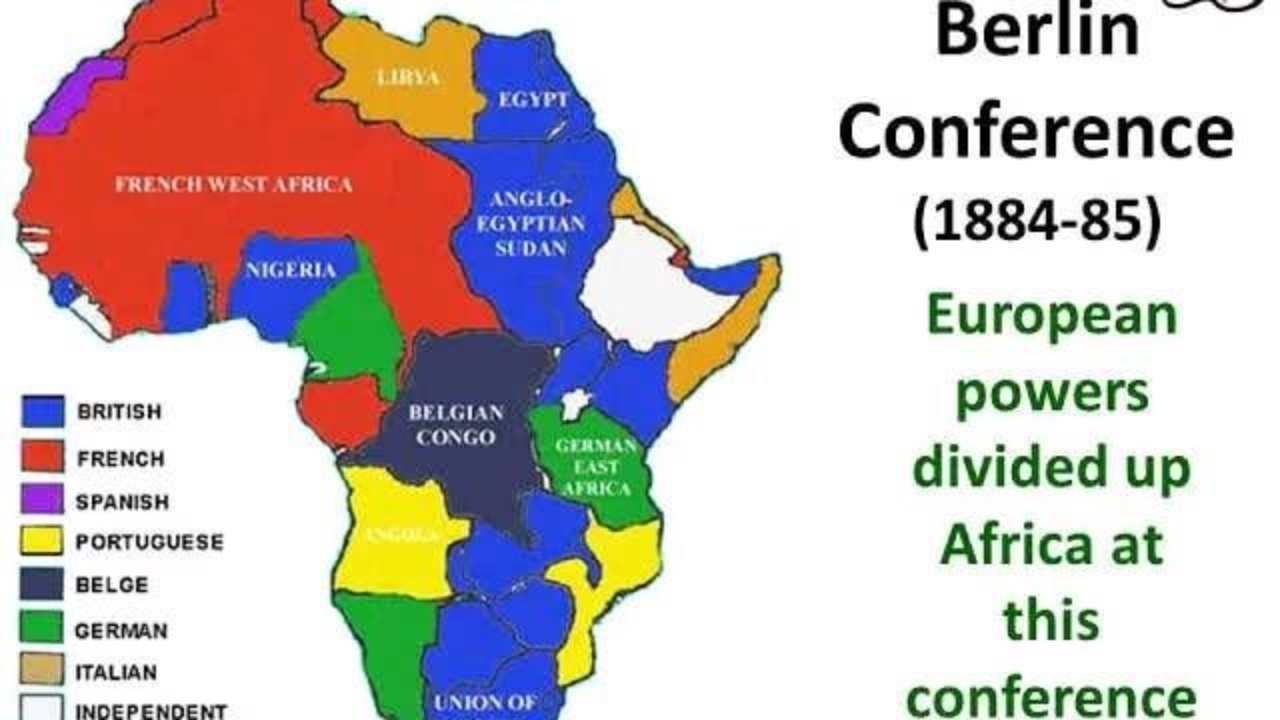The Berlin Conference: How Europe Divided Africa and Changed Its Future
Oct 09, 2025
In 1884–1885, representatives from 13 European countries and the United States gathered in Berlin, Germany, for what became known as the Berlin Conference. Not a single African leader was invited to the table, yet the entire African continent was on the menu. By the time the conference ended, European powers had drawn borders, divided land, and claimed ownership of Africa’s people and resources — decisions that still shape the continent today.
Why Did They Do It?
The late 1800s were the height of European imperialism. Industrial nations like Britain, France, Germany, Belgium, and Portugal were hungry for raw materials, markets, and global influence. Africa was rich in gold, diamonds, rubber, ivory, and fertile land — and European powers saw it as free for the taking.
The conference also grew out of rivalry. Each country feared being left behind as others carved out colonies. By “formalizing” the scramble for Africa, European leaders hoped to avoid wars with one another while legitimizing their domination of African people.
How Did They Do It?
The Berlin Conference set the rules of colonization:
-
A European power could claim territory if it “effectively occupied” it — building forts, stations, or settlements.
-
Rivers like the Congo and Niger were declared open to all European nations for trade.
-
No regard was given to existing African nations, cultures, languages, or borders. Straight lines on maps replaced centuries-old boundaries, cutting through communities and forcing rival groups together.
Within a few years, nearly 90% of Africa was under European control. Only Liberia and Ethiopia remained independent.
The Effects on Africa and Its People
The impact was devastating:
-
Loss of sovereignty: African kings, chiefs, and communities were stripped of authority. Traditional systems of governance were undermined.
-
Exploitation of labor and resources: Colonizers forced Africans into mines, plantations, and armies to fuel European economies.
-
Cultural destruction: Languages, religions, and identities were suppressed as European education and Christianity were imposed.
-
Artificial borders: Nations were drawn without regard to ethnic, cultural, or geographic realities. This created divisions that later fueled conflict and civil wars.
For African people, colonization meant not only the theft of land and resources but also generations of trauma and disconnection from heritage — a reality African Americans can understand, as it echoes the legacy of slavery in the United States.
The Road to Independence
After World War II, resistance movements grew stronger. By the 1950s through the 1970s, many African nations achieved independence. Ghana, under Kwame Nkrumah, was the first sub-Saharan country to gain freedom in 1957. Others soon followed — Nigeria, Kenya, Senegal, and more.
But independence came with challenges. Colonial powers had not prepared African nations for self-rule. They left behind economies dependent on raw exports, weak infrastructure, and borders that forced rival groups into uneasy coexistence. In some cases, European countries actively undermined new governments, supporting coups or assassinations of leaders who challenged Western interests.
Africa Today: The Legacy Lives On
The shadow of the Berlin Conference still lingers:
-
Many African nations continue to struggle with poverty, political instability, and conflict rooted in colonial borders.
-
Foreign corporations and governments often exploit African resources, echoing the extractive practices of the past.
-
At the same time, Africa has become a place of renewal and resilience — a continent of young people, cultural richness, and economic potential. Nations like Ghana, Rwanda, and Botswana are charting new paths forward.
Why This Matters to Us
For African Americans, the story of the Berlin Conference is not just distant history — it’s part of our shared struggle. Just as our ancestors endured slavery and systemic racism in America, our brothers and sisters in Africa endured colonization and exploitation. Both were built on the same system of white supremacy and greed.
Yet, just as Black people in America have survived, resisted, and redefined ourselves, so too have Africans. The fact that many nations fought for and won independence is a testament to resilience. The ongoing movements for African unity, self-determination, and economic justice show that the spirit of freedom is alive.
Closing Reflection
The Berlin Conference was a turning point that robbed a continent of its autonomy, but it did not extinguish the African spirit. Today, as we reflect on that history, we can also draw strength from the resistance and creativity of African people.
Africa is not defined by colonization — it is defined by its resilience, its cultures, and its future. And as members of the African diaspora, our story is forever connected to the continent’s story.
Stay connected with news and updates!
Join our mailing list to receive the latest news and updates from our team.
Don't worry, your information will not be shared.
We hate SPAM. We will never sell your information, for any reason.

